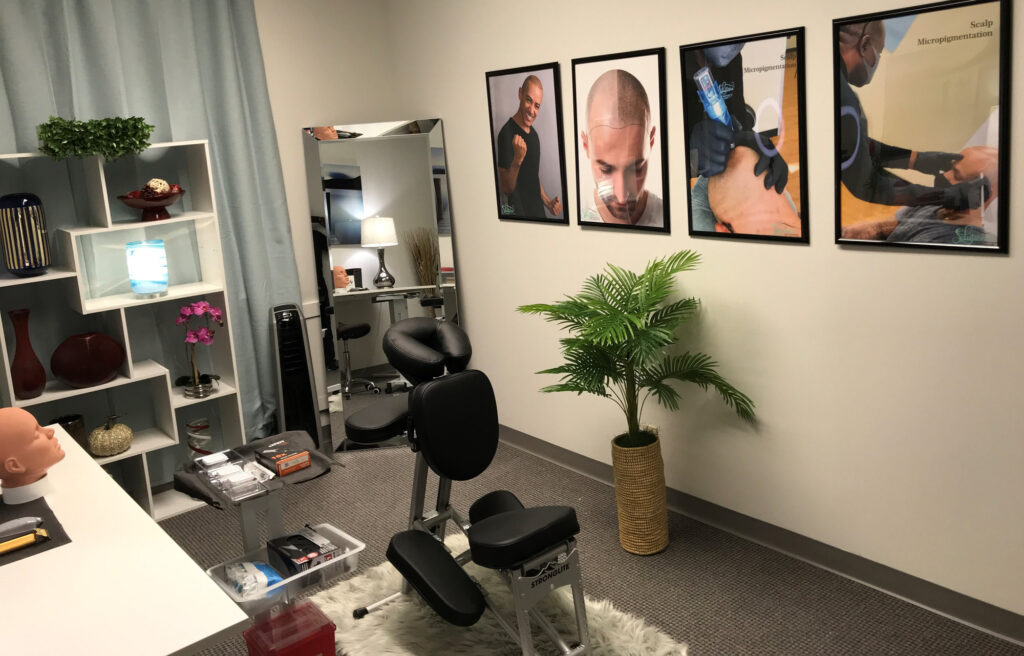
Scalp Micropigmentation (or SMP) is a non-surgical, highly advanced cosmetic tattoo method that gives the illusion of a close buzz cut hairstyle on a completely bald head or adds density to a thinning hairline. Scalp Micropigmentation is also unique in a variety of ways.
SMP involves the use of highly specialized equipment and techniques to inject pigment into the scalp. Scalp Micropigmentation is an extremely intricate procedure with a great result.
The procedure can also be used to conceal scars from hair transplantation, hide the visual impact of burns or scars on head. Scalp micropigmentation can be performed on all skin types and colors.
In contrast to other tattoos, the procedure penetrates the epidermal level of the skin and pigment is deposited in upper dermal level and the inks (or pigments) used are less prone to color change over time. The advantages of this procedure are that the hairline can be adjusted and freshened up with relative ease.
Any individual whether they have thinning hair or total baldness. It is also beneficial to those who have had prior hair surgery and want to increase density and camouflage scarring.
Depending on case, clients will need to maintain existing hair at short lengths.
4-5 Years after initial sessions
With proper care and treatment, including using high sunscreen when outside, SMP will commonly last for many years.
In a healthy client with a normal immune system, we expect that the color will last with original vibrancy for about 4-5 years, with a further fading of the pigment to last up to 8 years.
It is important to note that everyone is different so an estimated expected range of longevity would be provided at the consultation process.






Stay Updated and Connected: Join Our Newsletter